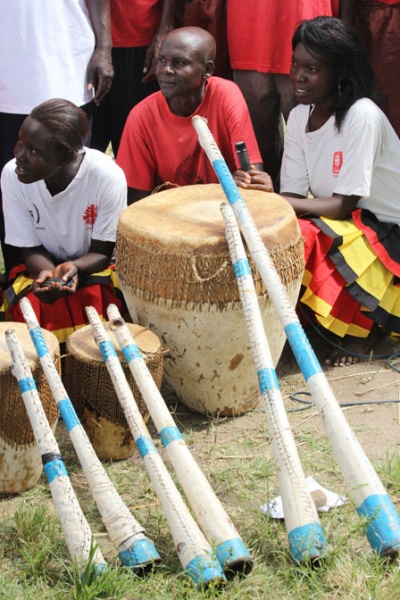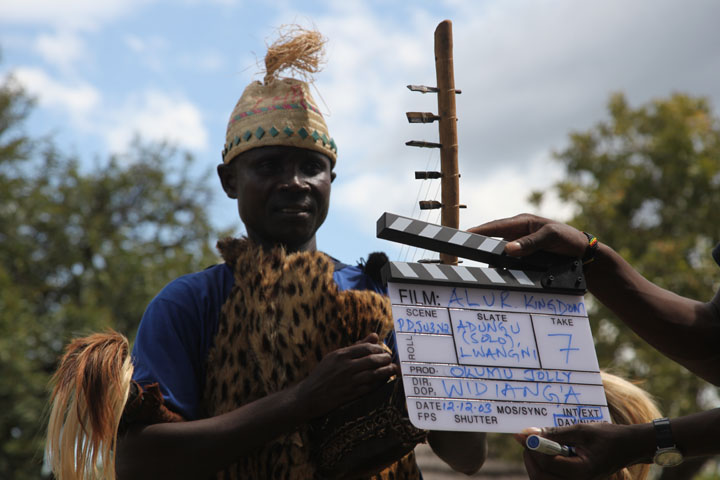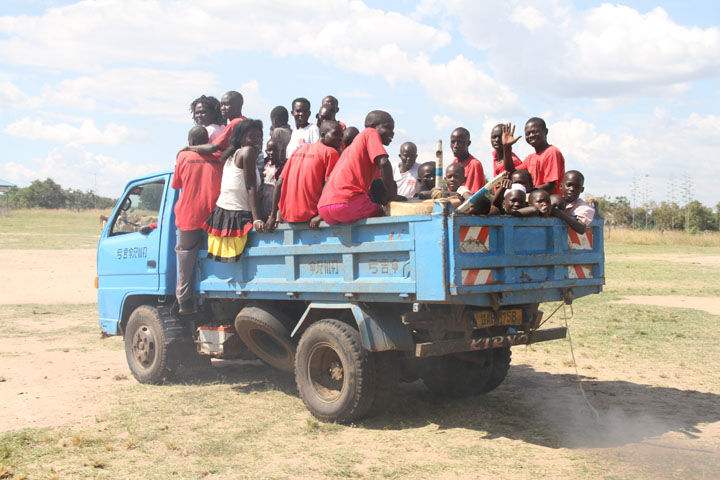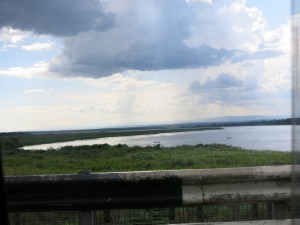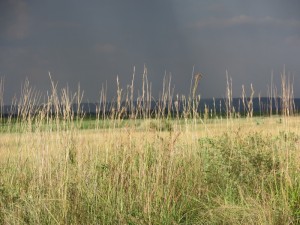Another amazing start to the day. Today it was all about music of the Alur tribe. We drove from Pakwach across the Albert Nile Bridge into the Nebbi district to the village of Widyanga.
The Music
Alur Kingdom Troupe
We set up amongst the ‘five layered’ thatched roof huts, settled down around the cows, goats and a really music loving chicken and recorded one single band, The Alur Kingdom Troupe, with every instrument imaginable:
- The Flute (yep, a flute)
- The Ndara (the amazing Ugandan xylophone)
- The Rigi-Rigi (similar to the Kenyan orutu)
- The Agwara (trumpets)
- The Adungu (the harp we’ve encountered every day now)
The group was formed in 1993 and is professional, touring Kampala and other parts of Uganda, sponsored by NGO’s and typically campaigning for things like HIV Awareness, Cultural preservation, etc… Except for the fact they wear clothes under their animal skins, they work very hard to be as traditional as possible. The performers are picked from the top villages around the area. Their leader is Cwinyaai Atya, Richard.
Their first song was Tambara, in the Osegu style. It is all about a stubborn girl who doesn’t want to marry early. Here they are, dancing in glory:
The second song was magnificent, called Oramba, the name of a hunter, in the style ‘Aliku’. This style is traditionally performed around the fire, as a celebration of the hunter’s coming back from a successful kill. The whole story is about the village not sure if the brave hunter will come back, but he does and he frightens everyone around the fire with his stories. Really fun.
The final song was Aywanga, in the Agwara style. It is the celebration of the chief. It features the spectacular Ndara, the Bul and Agwara and involves a lot of rolling around.
We loved it so much we recorded a ‘magic moment’ – there was even more rolling around then usual and the 150 kids around us had a great time.
We then took the time to solo each instrument given the quality of the musicians. The started with the Rigi Rigi, where Owach Tartizio sang Obimo. We then featured the Adungu, with Okumu Jolly playing Lwangni. And finally, we recorded the Ndara with Omiya Charles playing Mbeta.
We loved these musicians the fun of the traditional dances. You got mad at the stubborn girl, you got scared when the hunter returned and you celebrated for the new chief.
On the way to Fort Murchison where we were staying, we saw some spectacular stormy scenes as we crossed the River Nile:

